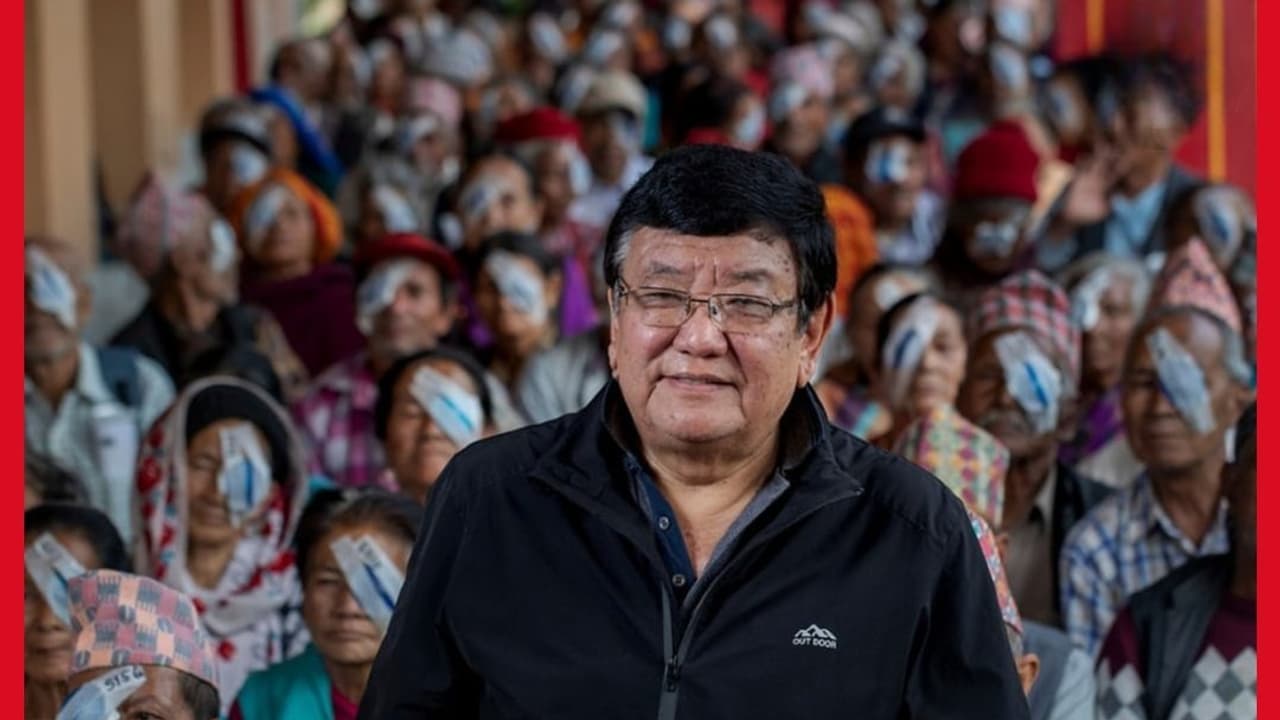Ruit founded Tilganga Eye Hospital in Nepal and conducts remote surgical camps, ensuring affordability for all. His impactful work earned him the Ramon Magsaysay Award and India’s Padma Shri.
Bengaluru: Imagine living in a remote mountain village where the nearest school is an 11-day trek away. This was the reality for Sanduk Ruit, born in 1955 in Nepal’s Olangchung Gola Pass. Despite the harsh terrain and limited resources, young Sanduk carried a dream that would eventually restore sight to over 100,000 people worldwide. Inspired by personal loss of his sister dying from tuberculosis, Ruit pursued medicine at King George’s Medical College in Lucknow and later at AIIMS Delhi. His big breakthrough came in 1986 while collaborating with Australian ophthalmologist Fred Hollows in Australia. They aimed to make cataract surgery accessible to the developing world. While the surgery worked, the lenses were far too expensive for the people who needed them most. That’s when Ruit’s ingenuity shone. In 1995, he designed an inexpensive intraocular lens, costing just $3 instead of $100, with the same 98% success rate as top-tier Western procedures. The innovation spread like wildfire and came to be used in over 60 countries and even taught in US medical schools.
Ruit didn’t stop there. Back in Nepal, he founded Tilganga Eye Hospital in Kathmandu, a modern facility that treats thousands weekly. For those in the most remote areas, he takes the hospital to them and sets up surgical camps in tents, classrooms, and even animal stables. His mission? To make sure no one loses their sight simply because they can’t afford it. Ruit’s impact is global. From Africa to Bhutan, Myanmar to rural China, he has brought vision and hope to countless communities. In recognition of his extraordinary work, he received the Ramon Magsaysay Award in 2006—and now, among 15,700 nominees, India has honored him with the Padma Shri. Dr. Sanduk Ruit didn’t just treat cataracts; he changed the world’s view of affordable healthcare, proving that compassion and innovation can literally open people’s eyes.
Normalcy Slowly Returns in Nepal
Meanwhile, Kathmandu is slowly limping back to normalcy after the recent unrest. Streets are calmer, markets are open, and families are visiting temples again. This renewed hope comes with the swearing-in of Sushila Karki, Nepal’s first woman interim prime minister. The 73-year-old former chief justice has been tasked with restoring order and addressing corruption—the main demand of young activists who pushed for her leadership. The deadly anti-corruption protests left 51 dead and parliament up in flames, following the resignation of former Prime Minister KP Oli.
